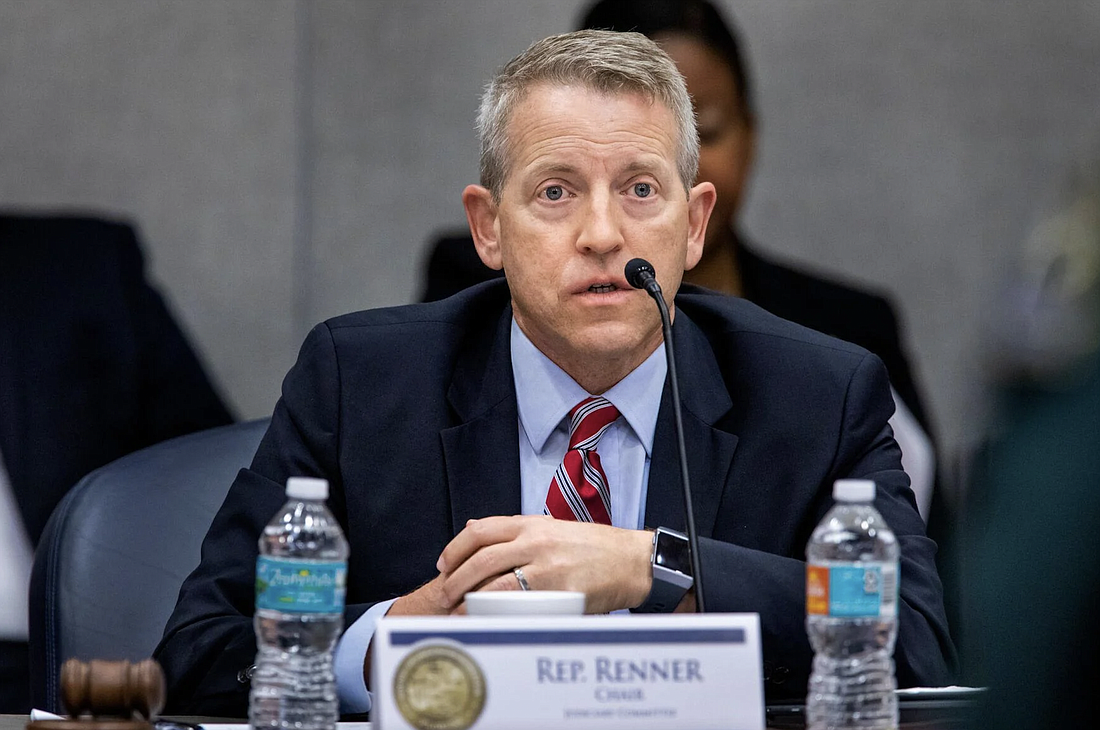- April 8, 2025
Your free article limit has been reached this month.
Subscribe now for unlimited digital access to our award-winning local news.

“Universal choice” was the phrase used by House Speaker Paul Renner on Thursday, Jan. 19, when he rolled out a proposal that would make all Florida students eligible for school vouchers — something Democrats decried as a Republican attack on public education.
“It does expand (eligibility) to everyone,” Renner, R-Palm Coast, said during a news conference. “And it also adds the extra layer of what’s called an ESA.”
The bill (HB 1) would essentially set up education savings accounts, or ESAs, which would provide state-funded vouchers that families would be allowed to use for private-school tuition and numerous other services and expenses.
Under the bill, for example, families could use vouchers to pay for tutoring expenses, instructional materials, fees for various exams and “contracted services” provided by public schools.
House Choice & Innovation Chairwoman Kaylee Tuck, a Lake Placid Republican who is sponsoring the bill, said the measure would allow parents to create a “customized and tailored education system that fits best for their students.”
But Democrats, who historically have opposed expanding voucher programs, were swift to condemn the proposal. House Minority Leader Fentrice Driskell, D-Tampa, said the bill represents “school choice for schools and not for Florida families.”
The bill would eliminate income-based eligibility requirements for receiving vouchers. Income limits for two of the state’s largest current voucher programs, for example, are $111,000 for a family of four.
Home-schooled students also would be eligible to receive vouchers under the bill. The measure would include a cap of 10,000 vouchers for home-schooled students in the first year, with the number growing to 20,000 a year after that.
Florida Education Association President Andrew Spar criticized the proposal, saying the Republican-led Legislature should focus on fortifying public schools.
“These voucher schools have little to no standards. And it’s interesting because they talk a lot about competition for public schools. And we always talk about the fact that it’s not an even playing field. We should be investing in where our kids are,” Spar said, noting that 90 percent of Florida students attend traditional public schools.
Spar also said lawmakers should be “laser-focused” on a shortage of teachers and staff members that has plagued public schools.
A review by Spar’s union of school districts’ websites showed 5,294 teacher vacancies and 4,631 unfilled staff positions, he said last week.
“The 5,294 teacher vacancies represents a 21% increase over last year at this time and over 200% more than 5 years ago at this time. This is the most pressing issue facing the education of Florida’s students,” Spar said in a post on Twitter.
Gov. Ron DeSantis has spent the beginning of 2023 making waves in higher education, including getting answers this week from universities about spending on diversity, equity and inclusion programs.
Meanwhile, DeSantis’ administration requested broad information from universities about services provided to transgender people.
The answers from the state’s 12 universities about spending on programs and other expenses related to diversity, equity and inclusion were made public Tuesday. The responses showed that universities spend millions of dollars on the initiatives — expenditures that the governor’s office has pledged to review as DeSantis targets “trendy ideology” on campus.
Your free article limit has been reached this month.
Subscribe now for unlimited digital access to our award-winning local news.